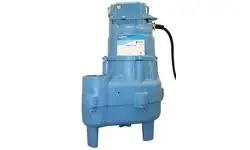Basque
- Afrikaans
- Albanian
- Amharic
- Arabic
- Armenian
- Azerbaijani
- Basque
- Belarusian
- Bengali
- Bosnian
- Bulgarian
- Catalan
- Cebuano
- Corsican
- Croatian
- Czech
- Danish
- Dutch
- English
- Esperanto
- Estonian
- Finnish
- French
- Frisian
- Galician
- Georgian
- German
- Greek
- Gujarati
- Haitian Creole
- hausa
- hawaiian
- Hebrew
- Hindi
- Miao
- Hungarian
- Icelandic
- igbo
- Indonesian
- irish
- Italian
- Japanese
- Javanese
- Kannada
- kazakh
- Khmer
- Rwandese
- Korean
- Kurdish
- Kyrgyz
- Lao
- Latin
- Latvian
- Lithuanian
- Luxembourgish
- Macedonian
- Malgashi
- Malay
- Malayalam
- Maltese
- Maori
- Marathi
- Mongolian
- Myanmar
- Nepali
- Norwegian
- Norwegian
- Occitan
- Pashto
- Persian
- Polish
- Portuguese
- Punjabi
- Romanian
- Russian
- Samoan
- Scottish Gaelic
- Serbian
- Sesotho
- Shona
- Sindhi
- Sinhala
- Slovak
- Slovenian
- Somali
- Spanish
- Sundanese
- Swahili
- Swedish
- Tagalog
- Tajik
- Tamil
- Tatar
- Telugu
- Thai
- Turkish
- Turkmen
- Ukrainian
- Urdu
- Uighur
- Uzbek
- Vietnamese
- Welsh
- Bantu
- Yiddish
- Yoruba
- Zulu
Telephone: +86 13120555503
Email: frank@cypump.com
Aza . 15, 2024 13:11 Back to list
sewage water submersible pump
Understanding Sewage Water Submersible Pumps An Essential Component in Waste Management
Sewage water submersible pumps play a vital role in modern wastewater management systems. Designed to operate while submerged in water, these pumps are crucial for efficiently transporting wastewater and sewage from lower to higher elevations, ensuring that it reaches treatment facilities without delay or disruption. In this article, we will explore the importance, functionality, and benefits of these specialized pumps.
The Importance of Sewage Water Submersible Pumps
Sewage water submersible pumps are essential in both residential and industrial applications. They are primarily utilized in wastewater treatment plants, drainage systems, and even in agricultural settings where sewage or stormwater needs to be managed effectively. By transferring the sewage away from homes, communities, and industrial locations, these pumps help prevent flooding, protect public health, and reduce environmental contamination.
Moreover, the design and operation of these pumps are crucial in meeting regulatory standards for sewage disposal, making them indispensable in urban infrastructure. Without proper pump systems, untreated sewage can lead to serious health hazards and ecological damage.
How Sewage Water Submersible Pumps Work
The operation of a submersible pump is relatively straightforward. These pumps are equipped with a sealed motor that is hermetically sealed and submerged underwater. The pump operates by utilizing a centrifugal mechanism to move water and solids through the pumping system.
When the pump is activated, the impeller inside the pump spins, creating a vacuum that draws the sewage into the pump. The spin generates centrifugal force, which propels the sewage upward through discharge pipes to a higher elevation, eventually leading to treatment facilities. This design allows the pump to effectively handle not only liquid sewage but also slurries containing solid waste.
sewage water submersible pump

One of the standout features of submersible pumps is their ability to work in environments where other pumps might struggle. Traditional pumps often require priming and cannot handle solid waste or high fluid levels effectively. In contrast, submersible pumps are designed to operate securely underwater, eliminating the risks associated with priming and making them especially helpful in emergency drainage situations.
Benefits of Sewage Water Submersible Pumps
The benefits of sewage water submersible pumps are considerable. Firstly, their ability to operate submerged allows for more stable and efficient operations, reducing the likelihood of air blockages and cavitation, which can damage other types of pumps. Secondly, they are typically more durable and robust, capable of handling the corrosive nature of sewage materials without deteriorating quickly.
Another key advantage is energy efficiency. Modern submersible pumps are designed to maximize energy use, incorporating features such as variable frequency drives to optimize energy consumption based on the flow requirements. This efficiency not only reduces operational costs but also minimizes the environmental impact of sewage transport.
Lastly, submersible pumps require less maintenance compared to surface pumps, as they are less exposed to the elements and do not have as many external components that could fail. Regular maintenance routines usually involve simple checks and minor adjustments, making them a cost-effective solution in the long run.
Conclusion
In summary, sewage water submersible pumps are a critical component of wastewater management systems, providing an effective and reliable means of transporting sewage. With their ability to operate underwater, handle solid waste, and minimize environmental impacts, these pumps are indispensable in both urban and rural settings. As we continue to prioritize sustainable practices and efficient wastewater management, understanding and utilizing the capabilities of submersible pumps will be vital in safeguarding public health and the environment.
-
Custom Drilling Mud and Slurry Pump Supplier - High Efficiency, Tailored Solutions
NewsJun.10,2025
-
Supply Vertical Submersible Sewage Pump High-Efficiency WQ/QW Pumps Supplier
NewsJun.10,2025
-
Premium Sewage Ejection System & Pumps Efficient Waste Removal
NewsJun.09,2025
-
Premium Wholesale Slurry Pump Impellers Durable & Efficient Slurry Handling
NewsJun.09,2025
-
Top Sewage Pump Companies Durable Industrial Solutions for Efficiency
NewsJun.09,2025
-
Heavy Duty Slurry Pumps - OEM High Performance & Bulk Wholesale
NewsJun.09,2025










